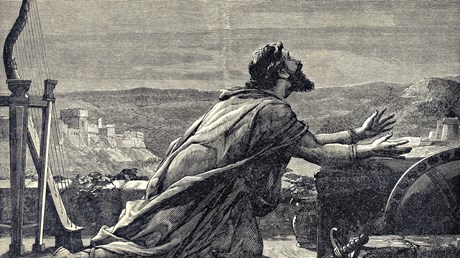The current debate over what happened to Bathsheba forces us to think deeper about motives and power.

As a kid growing up in the church, I certainly heard a lot ab out Jesus. But just short of the Savior, I heard countless stories about King David: stories of bravery, courage, power, trust, risk, battle, war, triumph, and conquest.
Christians have always recognized David’s brokenness to an extent, particularly his pursuit of Bathsheba, which has typically been considered (and decried as) adultery. Lately, there has been quite the debate over what exactly happened between David and Bathsheba, and whether it should be characterized as rape.
This is not a new conversation, which is always important to remember in our age of hot takes. Denny Burk, Boyce College professor and president of the Council on Biblical Manhood and Womanhood, points to a journal article by Alexander Abasili that addressed this question in detail in 2011, years before the scrutiny of the #MeToo movement.
Not all interest in this issue is a result of current cultural pressure or capitulation; there is a legitimate, significant question over how we understand David in this story.
I agree with Abasili’s analysis that story doesn’t explicitly include the details that seem to be specific to instances of a Hebrew understanding of rape—namely, direct physical force and the victim crying out in anguish for help. And yet, the story of David and Bathsheba appears to many modern readers, including me, to meet contemporary definitions of rape.
So how should we think of it? Did David indeed rape Bathsheba? And why does it matter that we as Christians today get this right?
Jesus Expands the Law
While Abasili establishes that the David and Bathsheba story does not explicitly meet the criteria of rape detailed in the law, Old Testament professor David ...
from Christianity Today Magazine https://ift.tt/33toQxj
No comments:
Post a Comment